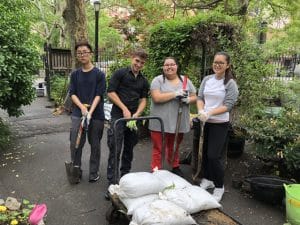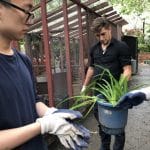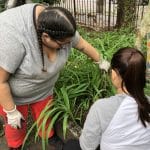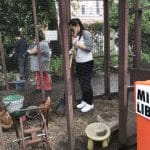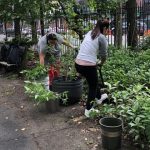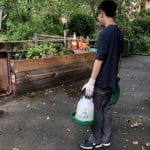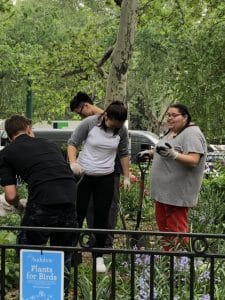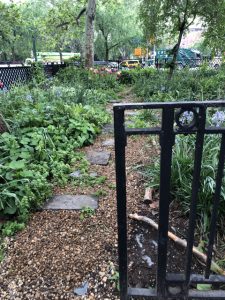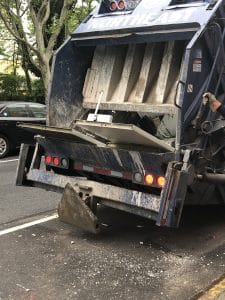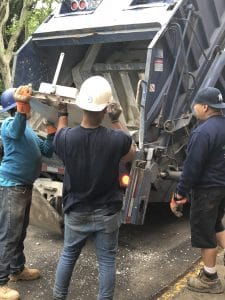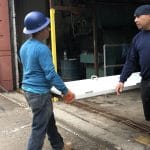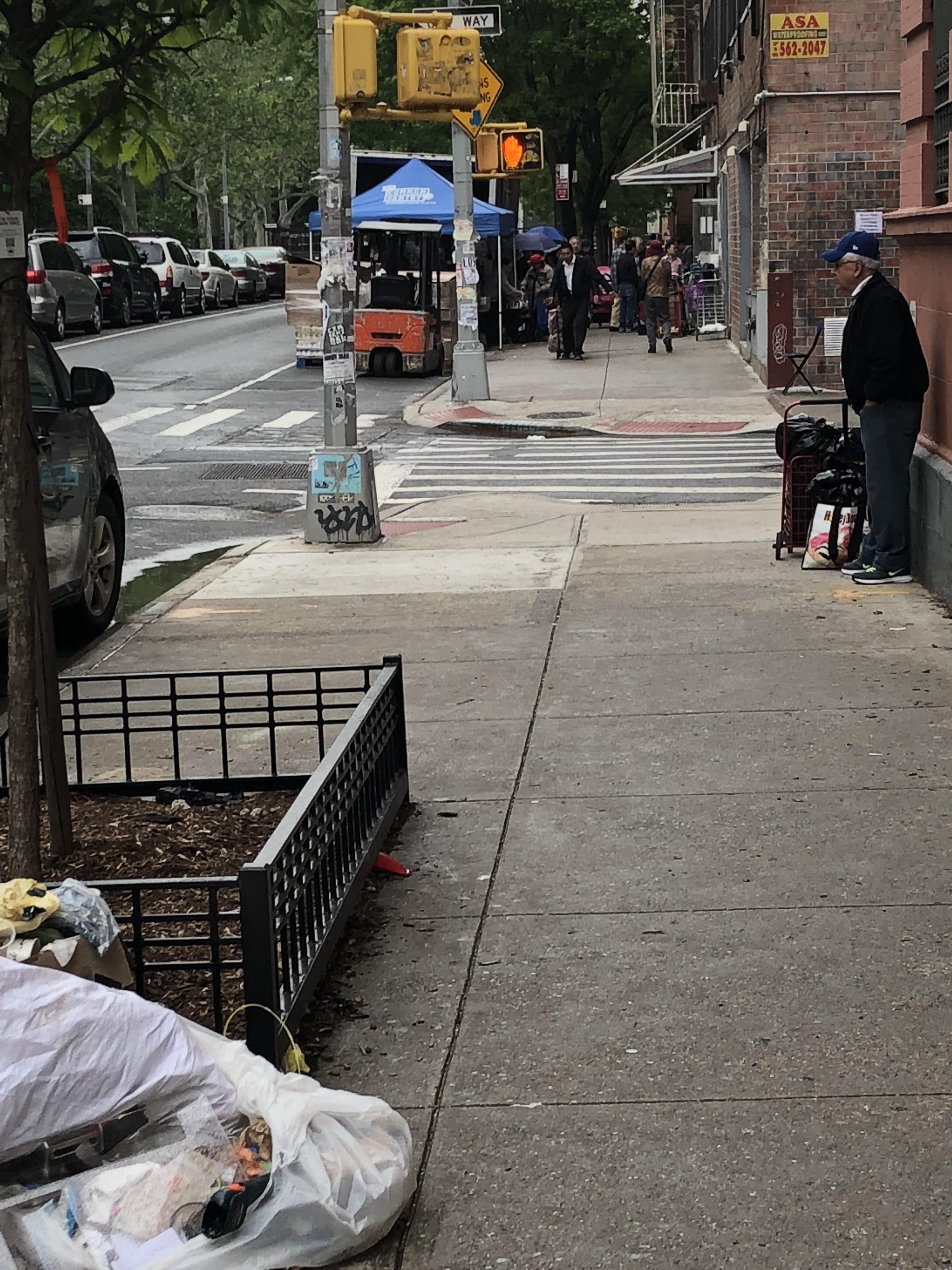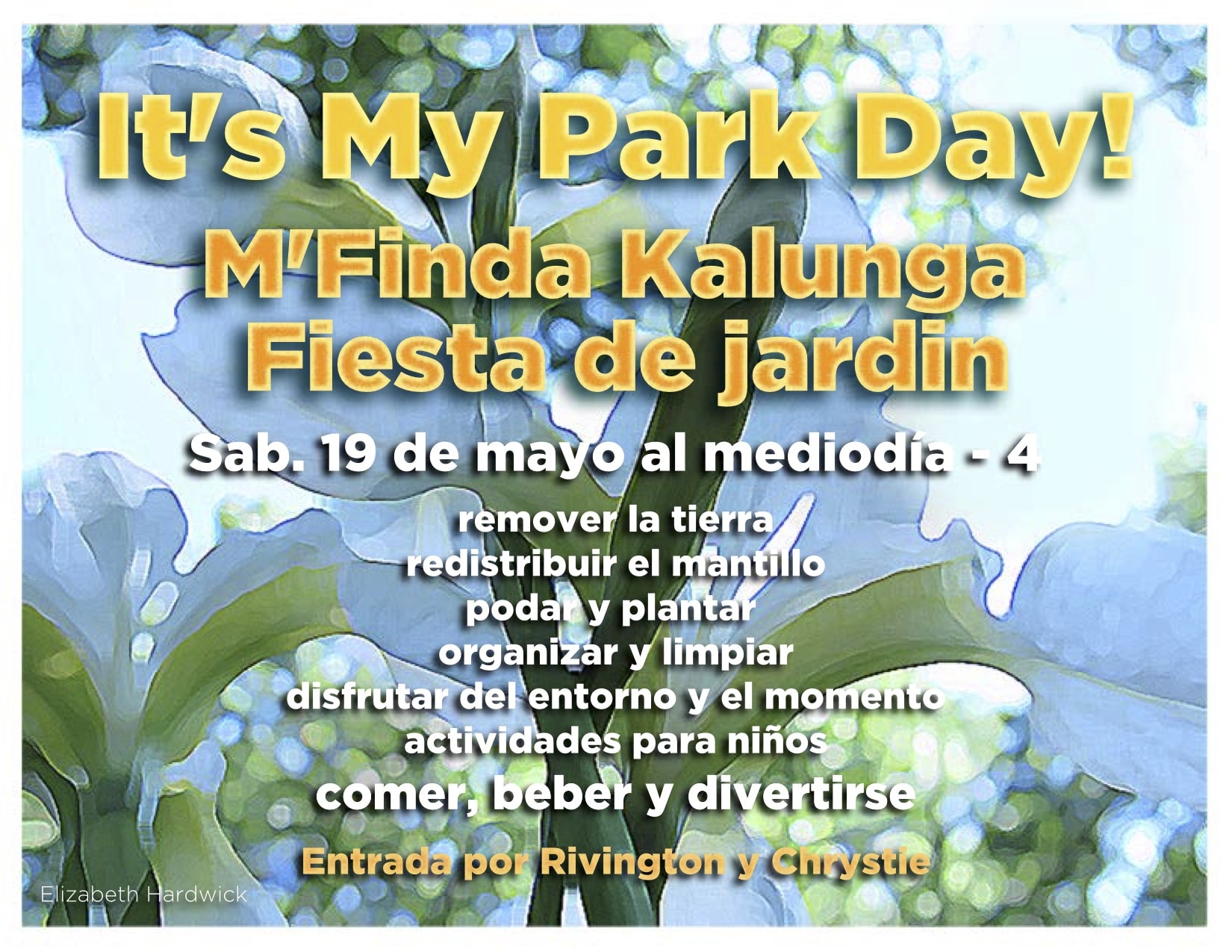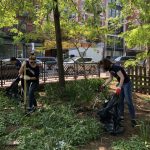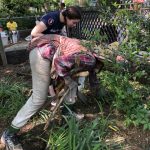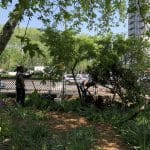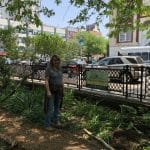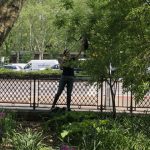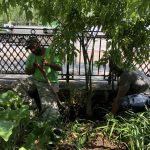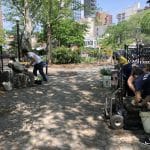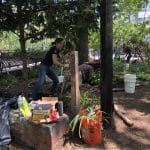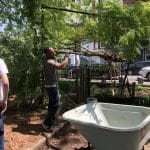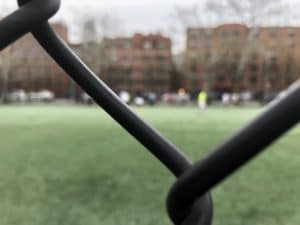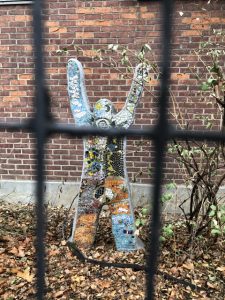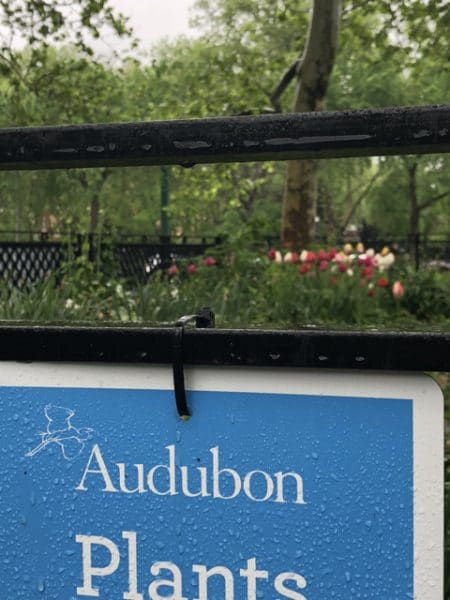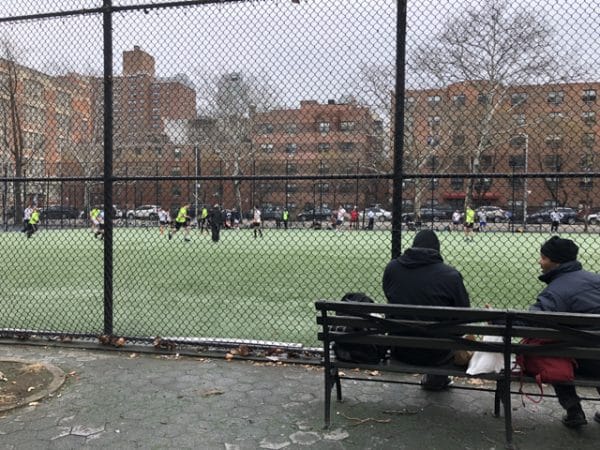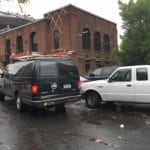From Neighbors to Save Rivington House: DOB Gives the OK for Interior Demolition of Rivington House
Despite CM Chin and MBP Gale Brewer’s letter to halt all work on this building until issues of zoning are resolved.
The permit doesn’t allow for major structural work and no change to occupancy. There was no timely notice to community, local elected representatives, etc. from DOB or the buyers.
Here’s the permit
Those are NY State taxpayer funded heavy metal doors being crushed.
Meanwhile, right down the street from this attempt to create luxury housing out of a community health facility…elders await food handouts of food. Oh and note the garbage piled up in front of Rivington House. Apparently garbage removal is only important when trashing the millions of dollars of upgrades paid for by NY State taxpayers.
Ralph Lauren Volunteers, Organized by Citizens for NYC, Help Out in New Forsyth Conservancy Plots
Thanks to the wonderful volunteers today and Andrew Citizens for NYC’s organizer and Kaitlin – SDR Park Park’s Department’s Gardener. And K and Bob who organized the day.
Kaitlin gave planting tips, individual lessons on ‘how to’ and trained a group of eager volunteers.
We all worked to support the ongoing, diligent efforts of the New Forsyth Conservancy all-volunteer group from the Tenement Museum. Thanks for all your efforts.
And thanks to Prince and Gregory and Will who also helped out today.
Here’s some of what happened:
Removed two ‘volunteer’ trees that were blocking light and air into plot, replanted blackberry, created pathways for easier access for park goers, planted wild aster, mulched plots, wood chipped pathways.
Where is the Help for Mental Illness for the Homeless?
From the Mental Illness Policy Organization:
250,000 mentally Ill are Homeless. 140,000 seriously mentally Ill are Homeless
“No vision haunts America’s conscience more than the sight of the street people… The irrationality and anguish that grip so many of these individuals leap out during any encounter, whether in Washington or Albuquerque.”
—Senator Pete Domenici (R-NM)
SUMMARY:
In January 2015, the most extensive survey ever undertaken found 564,708 people were homeless on a given night in the United States.
Depending on the age group in question, and how homelessness is defined, the consensus estimate as of 2014 was that:
- At minimum, 25 % of the US homeless—140,000 individuals—were seriously mentally ill at any given point in time.
- 45 % of the homeless—250,000 individuals—had any mental illness. More would be labeled homeless if these were annual counts rather than point-in-time counts.
Where do they live?
- 69 % of the homeless (389,000) were sheltered (living in emergency shelters or transitional housing)
- 31 % (175,000) were unsheltered living on the streets or in abandoned buildings, vehicles, or parks.
- These estimates do not include homeless “couch-surfers,” who camp out on the sofas of friends and families, move every few days, and have no permanent address.
Source: US Department of Housing and Urban Development (HUD), The 2015 Annual Homeless Assessment Report (AHAR) to Congress, Office of Community Planning and Development, Abt Associates, November 2015, (accessed July 9, 2016).
BACKGROUND:
Mental illness is a major contributor to homelessness. In a 2008 survey performed by the U.S. Conference of Mayors, 25 cities were asked for the three largest causes of homelessness in their communities. Mental illness was the third largest cause of homelessness for single adults (mentioned by 48% of cities). For homeless families, mental illness was mentioned by 12% of cities as one of the top three causes of homelessness. (National Coalition on Homelessness)
Lack of treatment for the most seriously mentally ill causes the kind of delusions and bizarre behavior that makes living alone or at home with families untenable. As a result, many become people with untreated serious mental illness become homeless and communities are forced to bear the cost of that…”
Read more here.
Red Tailed Hawks and Snowy Owls in NYC
Photos by Ann Feldman and Katie Leung
NYC Parks developed this video last year for the WildlifeNYC campaign to educate New Yorkers about red-tailed hawks and encourage wildlife viewing.
Red-tailed hawk hatchlings all around Manhattan have hatched their entire broods!
Apparently there is a Snowy Owl irruption this year in NYC. Check out this video about these striking birds of prey.
Sara Roosevelt Park Field and Court Usage Report
To find out when and which courts/fields are already have permits for use in SDR Parks Fields and Courts:
(though some names of ‘who’ is using appear to be missing)
Click here.
CB3 Speed Hump for Forsyth St, Pedestrians & Bicyclists & Traffic Accidents: Chrystie/Forsyth and Delancey
From NY Post:
“The Localize.city real-estate research startup analyzed official data to rank Great Oaks No. 2 on a list of city schools with the most pedestrians and cyclists hit within 500 feet between 2013 and 2017.
From the Localize.city website:
“These intersections had high rates of vehicle crashes injuring pedestrians and cyclists over the past 3 years.
By the numbers:
- 9 pedestrians hurt
- 12 cyclists hurt
Intersections hotspots:
- Chrystie Street and Delancy Street
- Ludlow Street and Rivington Street”
“Parents demanded immediate safety improvements around their kids’ schools on Monday, in the wake of a Post report that revealed scores of pedestrians and bicyclists have been struck by cars nearby.
Great Oaks Charter School on the Lower East Side parent:
“Seventy-eight accidents near my daughter’s school? Wow, that’s unbelievable. I know traffic is bad out here, but that’s really bad. The city has to do something.”
The city Department of Transportation said it would review the streets flagged by Localize.city with an eye toward reducing traffic dangers.”
Not to mention the parking of Parks Department cars and trucks in Sara Roosevelt Park itself?
And still awaiting Pedestrian Xing Signs for two – way bike lane on Chrystie so bikes and cars know to watch out for small children, elders, the blind gardeners, Deaf Housing residents and everyone else!
Good news? It looks like the deaf housing folks may get their speed bump on Forsyth Street to slow the traffic that speeds up the street! DOT approved. Now onto Community Board 3 hoping for approval tonight! CB3 Transportation Committee: Tuesday, May 8 at 6:30pm — The Lee – 133 Pitt Street (at Houston)
Please Help Find Lost Wedding Ring
Below is a photo of a wedding ring lost by someone in SDR Park. If you find it please contact this website.
It would mean a lot to the family.
Thank you!
- Go to the previous page
- 1
- …
- 88
- 89
- 90
- 91
- 92
- 93
- 94
- …
- 164
- Go to the next page

